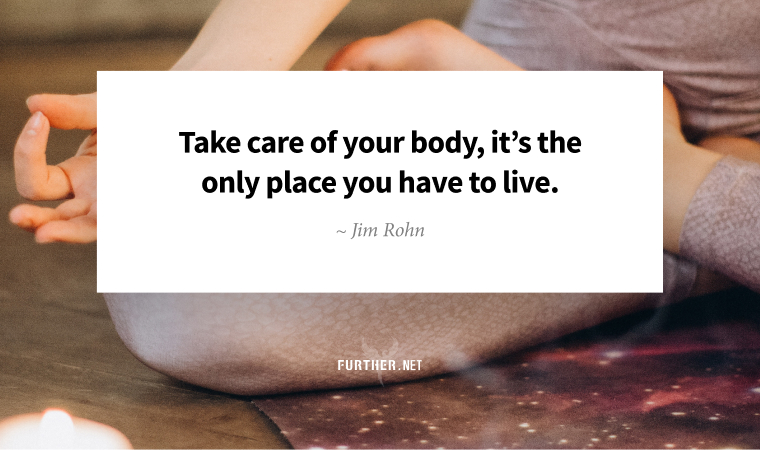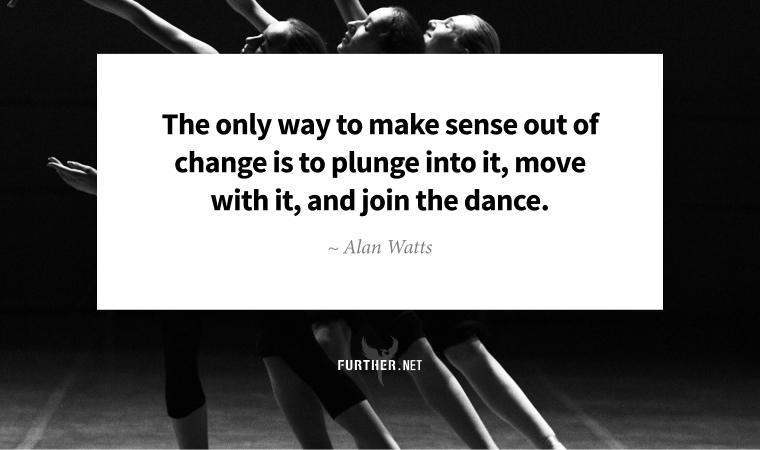
There’s an old saying:
Weight loss happens in the kitchen, fitness happens in the gym.
Two different goals, two different approaches. And yet we tend to conflate fitness with being thin. To be thin, we need to change our eating habits — often drastically — in order to lose weight and have that lithe body society tells us we need.
But thin doesn’t equate to fit. And it turns out, not only can you be fit without being thin, you should prioritize fitness over thinness if you want to live a long happy life … by a lot.
For better health and a longer life span, exercise is more important than weight loss, especially if you are overweight or obese, according to an interesting new review of the relationships between fitness, weight, heart health, and longevity.
The evidence suggests that you can be healthy at any weight. Obesity is a killer because obese people tend to be the opposite of fit — it’s not necessarily because they’re heavy.
And let’s face it, it’s hard for many of us to be thin. Even if we’re working out, we don’t seem to be making progress on the weight-loss front.
Past research overwhelmingly shows that people who start to exercise rarely lose much, if any, weight, unless they also cut back substantially on food intake. Exercise simply burns too few calories, in general, to aid in weight reduction.
But what if you’ve got the wrong objective? If you want to live longer, this research shows you don’t have to be thin, but you do have to be fit. Which means much like you should walk for reasons other than exercise, you should exercise for reasons other than weight loss.
As a whole, the studies they cite show that sedentary, obese men and women who begin to exercise and improve their fitness can lower their risk of premature death by as much as 30 percent or more, even if their weight does not budge.
Contrast that with dieting to lose weight without exercise. Studies show this only drops your statistical risk of dying young by about 16 percent, and in some cases not at all.
But wait, what about visceral fat? It’s well established that body fat that’s stored within the abdominal cavity is worse than other varieties. Turns out that focusing on fitness reduces this store of killer fat regardless of your ability to fit into your old Jordache jeans.
And then there’s the poorly-phrased phenomenon known as skinny fat, or “normal weight obesity.” In this case, you’ve got people who appear thin, and yet they are vulnerable to high blood sugar, low good cholesterol, high triglycerides, inflammation, and high blood pressure.
Thin can be healthy, but not necessarily. And if you’re fit, heavy can definitely be healthy.
Bottom line: if you want to keep going, keep moving. Vigorously.
Why Exercise Is More Important Than Weight Loss for a Longer Life (New York Times)
Keep going-
P.S. Did someone forward this issue of Further to you? Join us here.
Ghost Stress
There’s nothing overt that’s stressing you out, so why are you so exhausted, cranky, and foggy? It’s likely invisible stress, which quietly does its dirty work beneath your level of awareness.
Invisible Stressors: Are They Sucking the Life Out of Your Health? (Precision Nutrition)
Exponential Angst
This is a long but incredibly revealing excerpt from the new book The Exponential Age. Exponential change may well be the biggest “invisible stressor” we’re all dealing with, and it’s not going away. On the other hand, the “exponential gap” is where all the opportunity is.
The Exponential Age Will Transform Economics Forever (Wired)
Structured Chill
As much as some people may find the idea of leisure time appealing in theory, when it comes down to stepping away from work and other personal and family obligations — even for a few hours — the thought of not being “productive” can be a source of stress.
How You Should Structure (Not Schedule) Your Downtime (Lifehacker)
Un-Unretirement
The term “unretirement” originated to describe Baby Boomers who got bored being retired and came back to the workforce or started their own businesses. Thanks to the pandemic, a bunch of younger Boomers decided to throw in the towel early. Will they stay gone, clearing the way for upward mobility for Gen Xers? We’ll see.
Holiday Road
The holidays will be tricky this year, and not just due to potential gift shortages due to global supply chain issues. While there’s still potential for last-minute discounts on lodging and airfare, with such uncertainty in the system, there’s as great of a probability that travelers who wait too long to book could end up paying too much.
Finding Affordable Holiday Airfare and Hotels in 2021 (Frommers)
Navigating Your Ever-Changing Sense of Self

By Trudi Roth
In early September, I traveled with my daughter to her college town, Eugene, Oregon. One night, we witnessed an incredible spectacle: thousands of small birds swirling in a circle before simultaneously plummeting into a large black chimney.
A fellow spectator explained that it was the annual roost for Vaux’s Swifts before they began their autumnal migration south.
Likewise, I was embarking on my own new journey after my mother’s death in August. As it turns out, my inner guidance system brought me to just the right place to discover a path forward.
Navigating Internal Waters
Just as science shows animals rely on magnetism to return to familiar ground, people also have a built-in GPS. The hippocampus — the seat of cognitive functions like memory and navigation — is our primary tool to orient in space and time.
Mental time travel — the ability to remember and reflect, to imagine and plan for the future — is what made us human. It is also the pillar of our personal identity — the narrative string that links our childhood selves to our present selves to make us, across a lifetime of physical and psychological changes, one person.
That string, known as autonoetic consciousness, enables us to see reality as continuous and coherent. The landscapes from our youth form nostalgic connections and leave neurocognitive impressions that help us find fortitude when we need it most.
It’s no wonder I found Eugene so healing. Tucked away in a wooded studio, I spent my days alternating between sitting on a worn wrap-around porch and walking up a crunchy gravel road to a pine-tree-studded preserve. It reminded me of my childhood sleepaway camp in Maine, where I always felt carefree, safe, and happy.
The perfect place to begin regaining my footing after losing my mom.
Fortifying Your Brain’s Pathways
Physical wayfinding — identifying your position and mapping a way forward from there — informs emotional journeys. As M.R. O’Connor explains in Wayfinding: The Science and Mystery of How Humans Navigate the World:
Navigating becomes a way of knowing, familiarity, and fondness. It is how you can fall in love with a mountain or a forest. Wayfinding is how we accumulate treasure maps of exquisite memories.
Getting ample sleep is critical to preserve and protect your hippocampus. Also, gray matter is thickened when you travel to new places or even take novel routes to familiar destinations, drinking in every awe-inspiring detail.
The key is mindfulness — “savoring every unrepeatable moment.”
Because in the end, that’s what you’re left with: a collection of memories that form your sense of self. A loved one’s physical presence may be gone, but your recollections are familiar terrain. And that’s all we need to stay the course as we traverse transformation into the next phase.
Place, Personhood, and the Hippocampus: The Fascinating Science of Magnetism, Autonoetic Consciousness, and What Makes Us Who We Are (Brainpickings)
further: flashback
 U2 – Where The Streets Have No Name
U2 – Where The Streets Have No NameThe Joshua Tree , 1987
The most meaningful performance of “Where The Streets Have No Name” was at Super Bowl XXXVI, when an Irish band helped America heal after 9/11. The filming of the official video on a rooftop in downtown Los Angeles was pretty epic in its own way. (YouTube)
further: sharing

Further subscribers earn cool gear simply by referring friends to join the newsletter. Get your own free weekly dose of health, wealth, travel, and happiness advice here.
Thank you for sharing Further!
